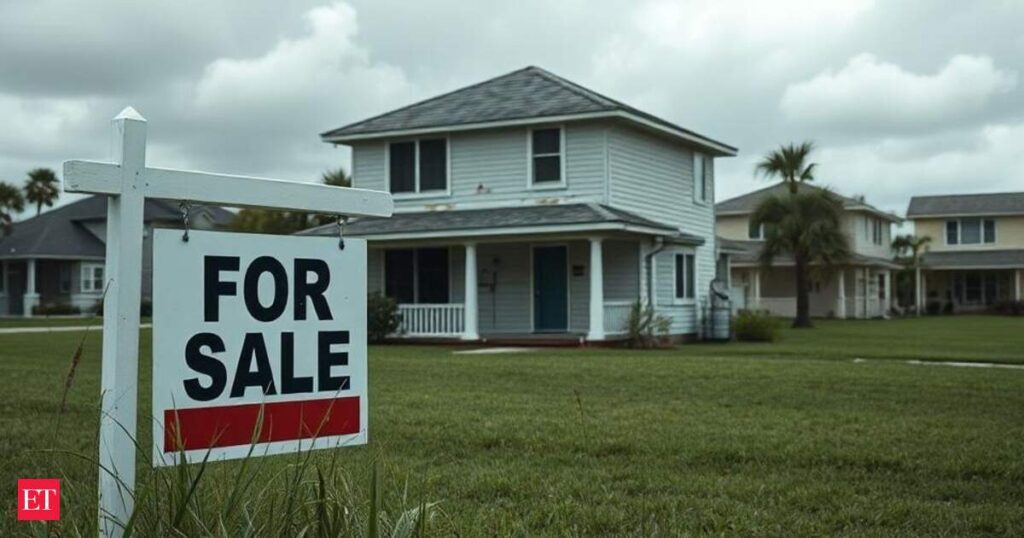Cape Coral Housing Market 2025: A Natural Correction Amid Turbulence in Southwest Florida
The housing market in Cape Coral, Florida, is currently undergoing significant changes, positioning it among the most volatile markets in the United States. Experts are closely monitoring the situation, with some expressing concerns over the rapid home price declines, while others argue this reflects a natural market correction rather than a collapse. This article provides an in-depth look into the factors driving Cape Coral’s housing market dynamics, the challenges ahead, and what buyers and sellers can expect as the market adjusts.
Understanding Cape Coral’s Housing Market Boom and Bust Cycle
Dramatic Price Surge During the Pandemic
Cape Coral’s housing market experienced an unprecedented boom throughout the COVID-19 pandemic. As people sought affordable living spaces with access to Florida’s favorable climate, demand skyrocketed. Data from Redfin reveals:
- Median home sale price rose from $239,020 (May 2020) to $436,475 (May 2022)
- Price appreciation neared 75%, peaking at around $441,000
This rapid price increase made Cape Coral one of the fastest appreciating housing markets nationwide, generating tremendous interest among investors and homebuyers alike.
The Inevitable Downturn in 2023 and Beyond
In 2023, the housing market began to cool, reflecting broader price corrections seen across the United States due to shifting economic conditions. Key price changes in Cape Coral since 2023 include:
- May 2023: Median price dropped 5.3% to $413,245 year-over-year
- May 2024: Further decline of 5.3% to $391,200
- May 2025: Median price fell another 7.7% to $361,250
According to The Wall Street Journal, Cape Coral has seen one of the sharpest declines in home prices nationally, with an 11% drop over two years through May 2025.
Key Factors Behind Cape Coral’s Housing Market Shift
Rising Supply and Buyer-Seller Imbalance
One critical aspect driving price adjustments is the dramatic imbalance between available homes and interested buyers. Insights from Parcl Labs highlight:
- Record inventory surplus of 10,049 housing units, a 525% increase since 2022
- Absorption rate of 0.268, significantly below the national average of 0.423
- Over 55% of listings are reducing prices, surpassing the national average of 34%
Impact of New Developments and Economic Uncertainty
Florida, including Cape Coral, witnessed a construction boom during the pandemic, leading to a steep rise in homes for sale. In May 2025, Florida recorded:
- Total of 234,288 homes for sale, up 14.2% year-over-year
- New listings totaling 45,771
However, buyers are hesitant due to high mortgage rates, inflation concerns, and economic uncertainty, which have dampened demand and prolonged the market correction.
Decreased Domestic Migration and Return-to-Office Trends
Unlike the pandemic surge, recent trends show a slowdown in domestic migration to the Sunshine State. Contributing factors include:
- Revival of return-to-office policies nationwide
- Reduced appeal for remote workers relocating to Florida
This slowdown has further reduced buyer activity in already saturated markets like Cape Coral.
Unique Challenges Facing Cape Coral’s Housing Market
Natural Disasters and Insurance Costs
Cape Coral has faced significant adversity beyond typical market fluctuations:
- Hurricane Ian in September 2022 caused widespread damage
- Subsequent storms have hampered full recovery efforts
- Increased home insurance costs, with averages reaching $7,679 annually (MoneyGeek)
Insurance carriers have pulled back coverage in high-risk areas, compounding the financial burden for homeowners and adding pressure to the local housing market.
Market Experts’ View: Correction, Not Collapse
Real estate professionals emphasize that Cape Coral’s current scenario should not be confused with the 2008 financial crisis. While the infamous crisis resulted from subprime mortgages and unchecked speculative buying, Cape Coral’s downturn stems mainly from:
- Elevated mortgage rates
- Increased housing supply
- Economic and natural disaster-related uncertainties
As HousingWire agents explain, these represent “normal market correction forces” rather than systemic collapse indicators.
What Buyers and Sellers Need to Know
For Buyers:
- Homes are more affordable than their pandemic peak, creating potential buying opportunities
- Be mindful of insurance costs and climate risk factors when choosing locations
- Mortgage rates remain a challenge; consider locking in rates early
For Sellers:
- Price reductions are frequent and often necessary to attract buyers
- Increased inventory means higher competition among sellers
- Staying informed about market trends is crucial for setting realistic prices
Conclusion: Navigating Cape Coral’s Changing Housing Landscape
Cape Coral’s housing market is at a crossroads. After a remarkable pandemic-driven price surge, the city is witnessing a natural and necessary correction fueled by supply-demand imbalances, rising mortgage rates, economic headwinds, and environmental challenges.
For those considering entering this market, understanding these dynamics is key to making informed decisions. With market activity normalizing, Cape Coral continues to offer opportunities—but only for those prepared to navigate its complexities.
Explore more about the Florida housing market trends and stay updated with latest news from Cape Coral’s city development plans.


